Although a disappearing breed, these eateries still can be found in Chester County
By Gene Pisasale, Special to The Times
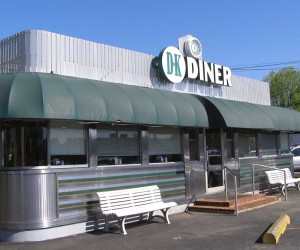
The DK Diner in West Chester is a classic example of a disappearing breed: the railcar or prefab diner. Once plentiful in Chester County, now it requires a bit of a hunt to find these gems of Americana.
From Edward Hopper’s 1942 painting “Nighthawks” to Airstream-sleek capsules with counters lined with people sipping steaming cups of coffee, diners became symbols of a young, vibrant America- at work, at leisure, always moving forward with exuberance and vitality. The hit T.V. show “Happy Days” in the 1970’s took place in a casual, diner-like atmosphere and was a look back at a time when things were just… a bit less complicated. Where have all the diners gone? If you drive around Chester County, you’ll find several, their cooks still making omelettes and home fries on the grill, along with that Pennsylvania favorite- scrapple.
The origins of the diner date back to New England circa 1858. A printer named Walter Scott from Rhode Island supplemented his income by selling coffee and sandwiches from a basket to workers on the night shift. By 1872, business was so good, Scott quit his printing job and began selling food from a horse-drawn covered wagon outside the Providence Journal newspaper offices. The lunch wagon concept became so popular, companies began manufacturing more sophisticated versions with wide seating areas and awnings for dining during inclement weather.
The word “diner” is a derivative of the term dining car used by the railroads. Decommissioned railroad and trolley cars were often converted by individuals who wanted an easy way to start up a restaurant. Over the decades, diners became more elaborate, with wider dimensions, a larger food selection and indoor bathrooms. In the 1930’s, streamlined Art Deco versions enticed people to relax in a stylish setting emphasizing speed and mobility in the Industrial Age.
Despite the Great Depression, many diners prospered, offering inexpensive food late at night when restaurants were closed. The post World War II period was a booming time for diners. Americans were spending again after a period of austerity. After their peak in the 1950’s- 1960’s, diners began to lose market share as fast-food chains attracted those wanting quick, low cost meals. Although many did close due to intense competition, some local diners got support from patrons who appreciated their simple charm. Firms like Ruby’s and Johnny Rockets have tried to re-capture this nostalgia by providing a 1950’s-style setting and “period” menus.
The Creekside Diner in Kennett Square traces its roots to a 1930’s railroad car. Originally located at the ferry ramp on the New Jersey side of the Delaware Memorial Bridge, the business was moved in 1952 and became the Avon Grove Diner (also known as John Taylor’s Diner). Co-owners John Vogel and Karen Billas have been serving breakfast and lunch at the current location since 2006. Unique, personalized license plates from around the United States cover part of the wall above wooden cabinets original to the structure.
The D-K Diner in West Chester has the classic, streamlined look of an Eisenhower-era eatery. The stainless steel framework was built in 1953 by the Mountainview Company. It was packed on the Sunday morning I arrived for breakfast, lucky to get a seat as a long line formed outside the front door. The food is good; the interior sparkles. The D-K has the “feel” of places I recall from my childhood; the quaint décor is likely one of the reasons for its success. Semi-circular aluminum stands along the side tables harken back to another era- when they held jukeboxes belting out three tunes for a quarter. The Frazer Diner on West Lancaster Avenue is also in the style of a dining car. It was crammed with guests when I visited, bustling with activity as people sat at the counter enjoying breakfast fare.
The Oxford Diner is a Silk City model built in 1953 by the Patterson Vehicle Company. After sitting closed for many years, it was re-opened by Tom Greenfield in 1994. Their website lists the “Diner Ten Commandments” including “Thou Shalt Not Eat At McDonald’s” and “Thou Shalt Pray Facing the Sacred City of Providence”, the latter in homage to the birthplace of the modern diner. Sadly, some well known establishments are now gone. The Downingtown Diner, featured in the 1958 movie “The Blob” has shut its doors after many years of operation.
Although they’ve dwindled in number, diners still offer good food and reasonable prices. For those wanting a hearty meal while remembering a less hectic time- when buzzing cell phones didn’t dominate our culture- these sanctuaries are an antidote to modern civilization. Step inside, sit at the counter and for a little while enjoy one of life’s simple pleasures… from days gone by.
Gene Pisasale is an author based in Kennett Square, Pa. He’s written four books, including historical novels of the Chester County area and a review of the Sanderson Museum in Chadds Ford. His website is www.GenePisasale.com; he can be reached at Gene@GenePisasale.com

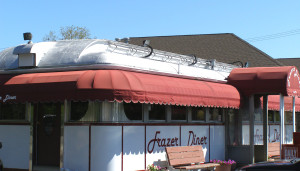
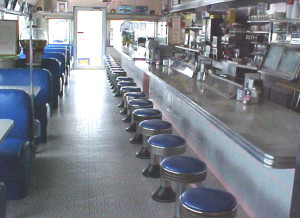



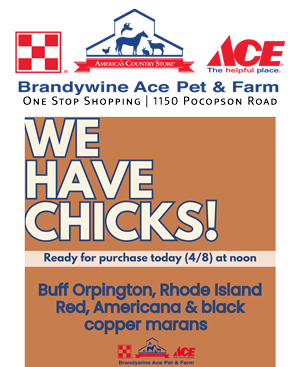
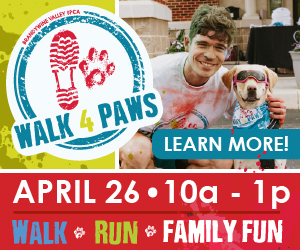


The El Sombrero, which was previously the Avon Grove Diner, is a 1952 Mountainview model and has been at that location on Route 41 in Avondale for more than 40 years. The Avon Grove Diner, later renamed the Diner at Avon Grove, was owned by the Dillon family from 1968 until 1998. I am unaware of any connection between the Creekside Diner Diner and the Avon Grove Diner. Is it possible that Martin and Doris Dillon puchased that building from John Taylor?